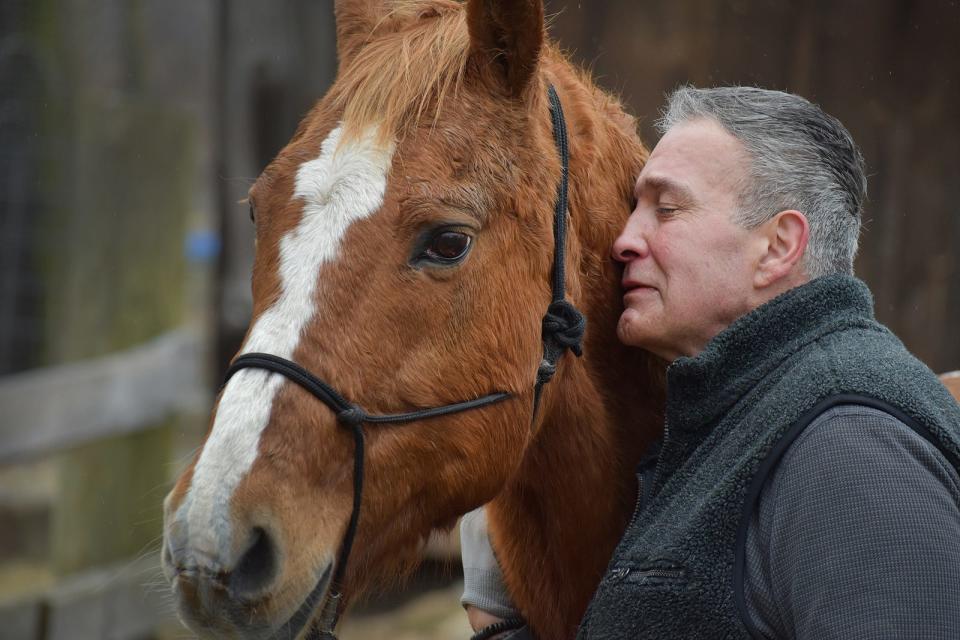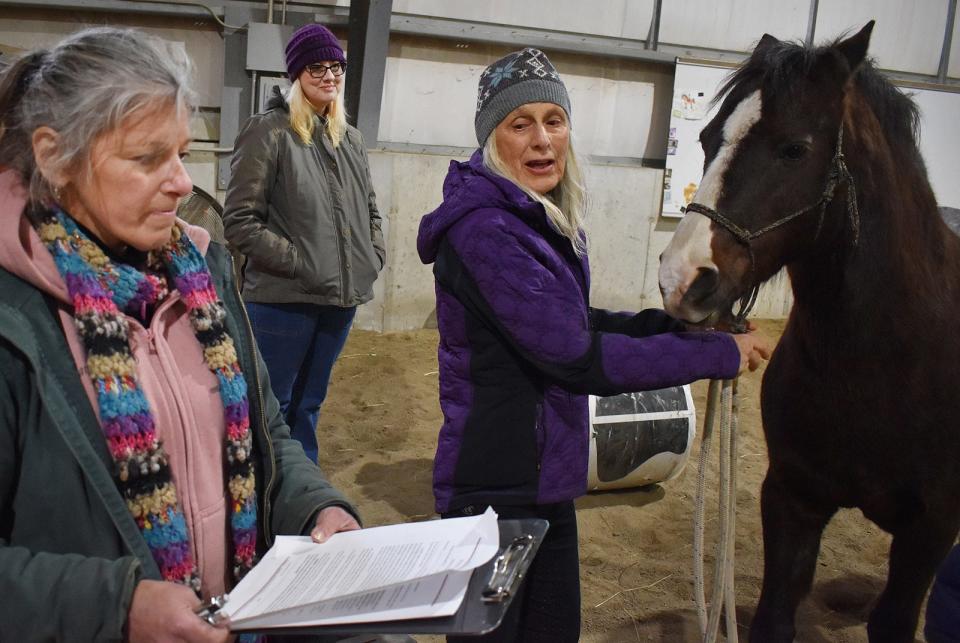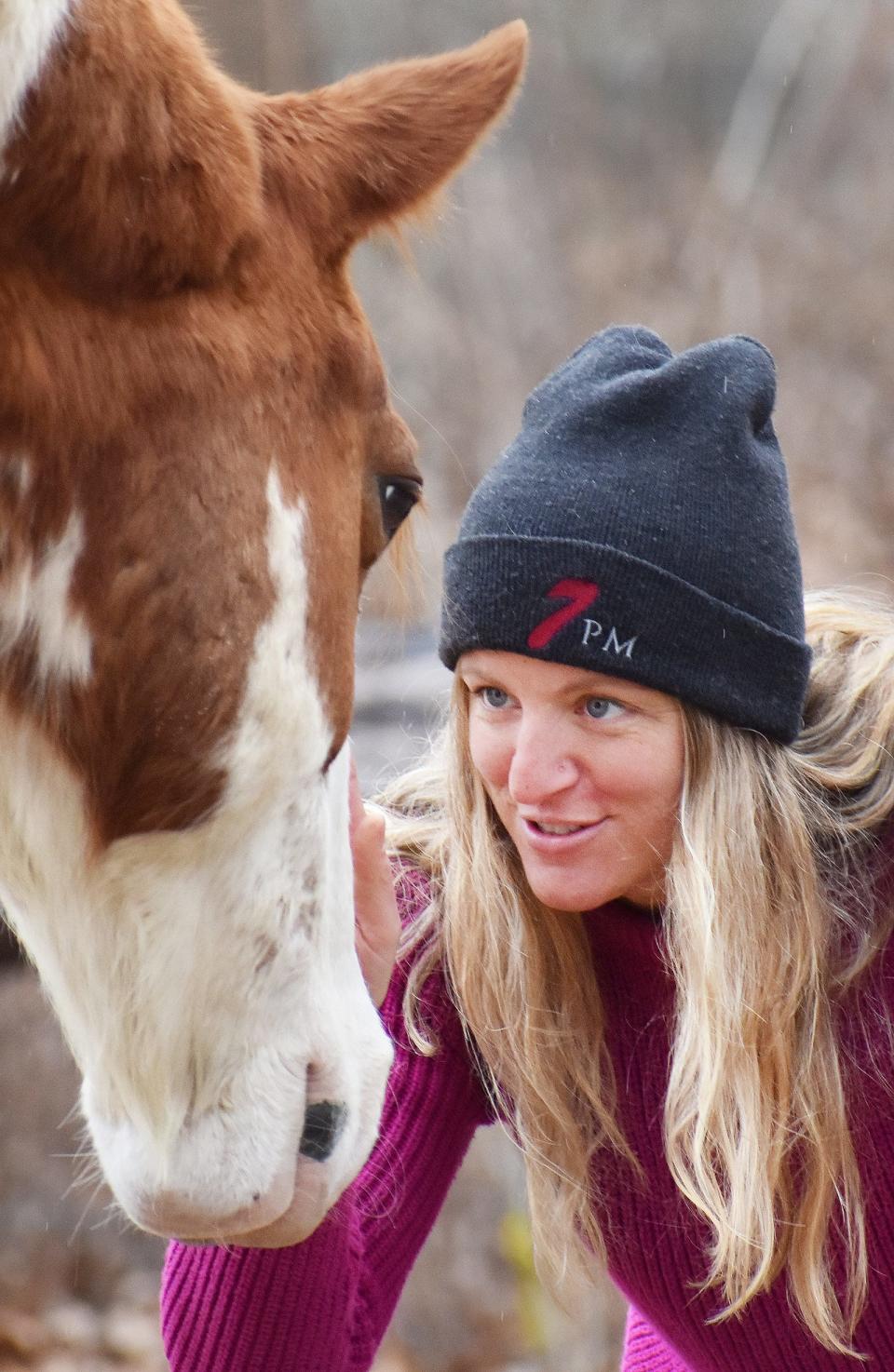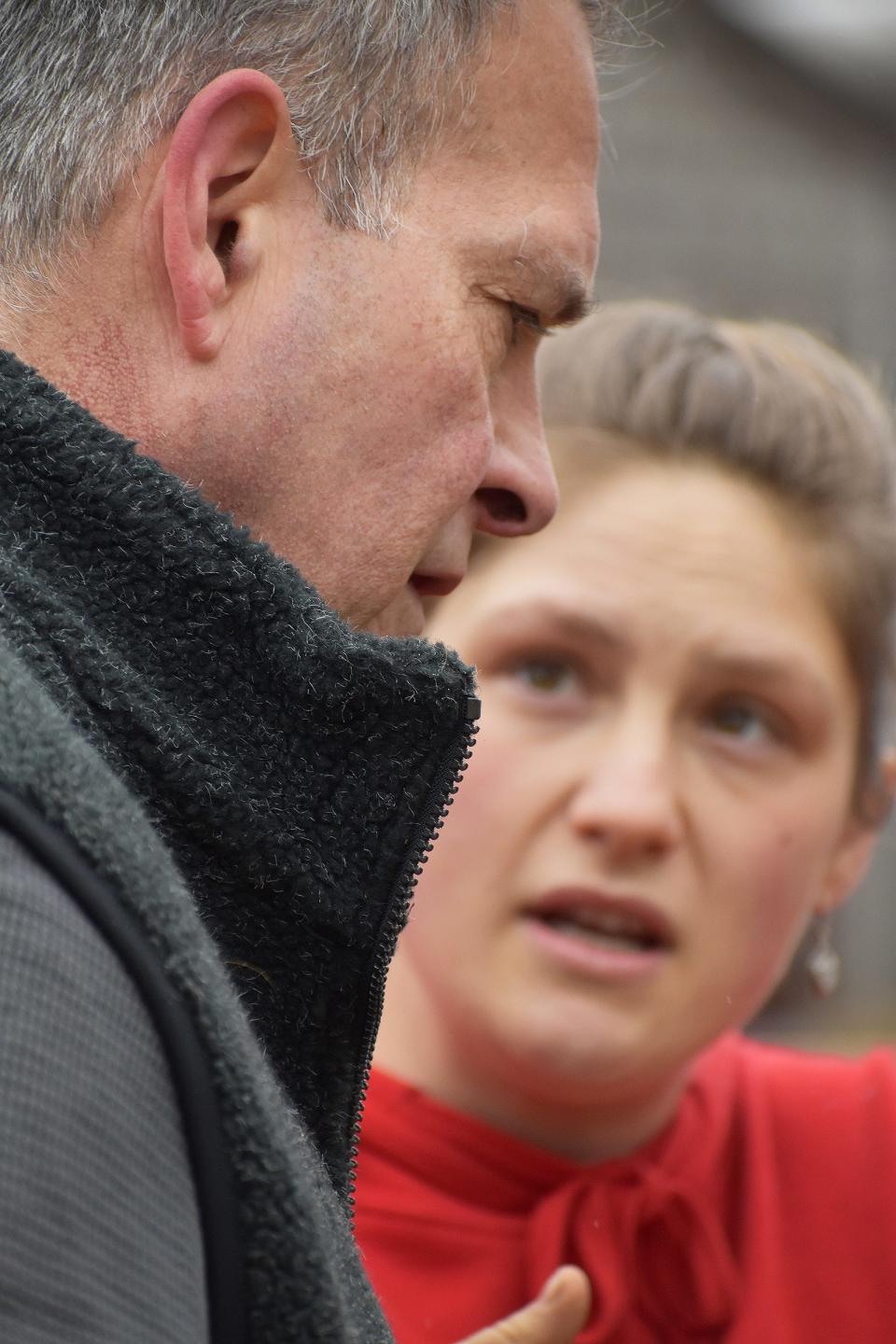How a Tiverton equine therapy program improves mental health: 'The horses make you capable'
TIVERTON – The largest and, arguably, most important members of Carol Ann Silva's staff are not on the payroll. No worries, they're content with room and board. And they do eat a lot.
Silva runs the Medicine Horse program at her Silva Spirit Farm on Eagleville Road, in the north end, not far from the casino. Medicine Horse is, as stated on its home page, equine-assisted psychotherapy and personal development. It uses an experiential model called EAGALA and features a team of equine specialists, mental health professionals and, of course, the horses.
Program participants, the site notes, “learn about themselves and others by partaking in activities with horses and then discussing thoughts, beliefs, behaviors and patterns.”
How equine therapy works
Saddles and bits are not among the Medicine Horse tools of the trade. This is not about riding the horses; it's about interaction. The animals are, literally and figuratively, on equal footing with participants and other team members. Participants stand or sit next to the horses. They walk with them. They talk to them. They lead them. Sometimes the horses sit. The participants touch the horses and sometimes groom them. They learn some horsemanship. They share thoughts with them.

People and horses have a long, long history together, a productive co-existence made possible, Silva said, because horses are adept at reading the intentions of humans. “They live in the present,” she said. “They're non-judgmental. They read what's in front of them.”
Those qualities, Silva said, make them effective 1,200-pound (except for the miniatures) mental health assistants to humans.
Silva said it's been proven that the heartbeats of humans and horses can synchronize when they interact.
Marjory Roberts Gray, a clinical psychologist in private practice for 18 years, is part of the Medicine Horse team at Silva Farm. She's loved horses since childhood and was “thrilled” to discover that horses could help with psychological healing. She received her EAGALA equine-assisted psychotherapy certificate in 2015.
In her Medicine Horse website biography, Gray says, “I have been lucky enough to witness the profound ways in which horses facilitate experiential learning and change for a wide variety of clients. This type of treatment allows a story to emerge about each person we bring into the arena, and our equine partners help shape the direction and nature of that story with their in-the-moment immediate 'feedback.'”

Jessica Veroline, a licensed independent clinical social worker in Rhode Island, is another member of the Medicine Horse team. She earned a master's degree from Fordham University, became EAGALA certified in 2013 and continued her animal-assisted therapy through the University of Denver School of Social Work.
“My approach to counseling is strength-based and solution-focused,” she says in her website bio. “I utilize play, art, cognitive-behavioral, person-centered, trauma-focused, and experiential therapies. I have a strong interest in incorporating a holistic approach to counseling which utilizes the mind-body-spirit connection.”
Grant funding allows Medicine Horse to care for veterans, first responders
With many who could benefit from equine therapy unable to pay for it themselves, the Medicine Horse program relies heavily on grants. Silva said Medicine Horse is constantly writing grant applications.
Grant funding from The United Way of Fall River has specifically helped Medicine Horse assist veterans and first responders.
Silva said there's a lot of connections lost with veterans, like lost connections with their military families. “We like to work with them in groups because that's how they were traumatized, in groups,” she said. “Building relationships with four-leggeds does seem to translate into their lives.”

Brian Rapoza, 59, a disabled Army veteran and retired Fall River firefighter, started volunteering at Medicine Horse in February. He suffers from PTSD from his 19 years of work as a firefighter. He visited a Medicine Horse open house with a group and was “intrigued” he could volunteer. Able to benefit from a grant for veterans and first responders, Rapoza also did the therapy. He said he plans to be a Horse Medicine advocate to his firefighter friends and veterans, especially while the grant money is available.
“It works,” he said. “ It opens so many doors in your heart and your mind. The horses just fill your cup. When you come in here you won't leave the same. You come in here one way, and when you're leaving, you definitely feel different. And that's what keeps me coming back.
“I've always had a love for horses, but I was always intimidated or didn't know I had the capabilities. But the horses make you capable. The horses bring out what you're afraid to let out. That's what these horses do. They know what you need. When you walk in the gate, you walk in the pen, they know exactly what you're lacking. And that's what they give you. You can feel it when you leave here. You leave here with something you didn't come in the gate with. That's all I can say. Everybody can figure that out on their own.”

Silva shared an insightful quote from Rapoza on how equine therapy can work for veterans and first responders: “We don't need to talk to someone. We need to talk to ourselves.”
Therapy continues year-round
Funding from the Rhode Island Foundation's Special Medical Funds has helped Medicine Horse assist participants of all ages with a wide variety of medical issues. A Rhode Island Foundation grant made it possible for Silva to install heating for the indoor arena. Winter cold had too often prohibited Medicine Horse from serving clients in January and February. Phil's Propane, a Tiverton business, installed the system and donated 1,000 gallons of propane.
For more information on Medicine Horse, call (401) 640-7506 or email silvaspiritfarmeagala@gmail.com.
This article originally appeared on The Providence Journal: Medicine Horse equine therapy helps RI veterans, first responders

